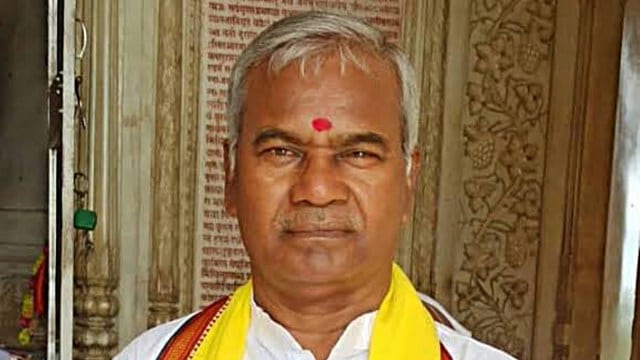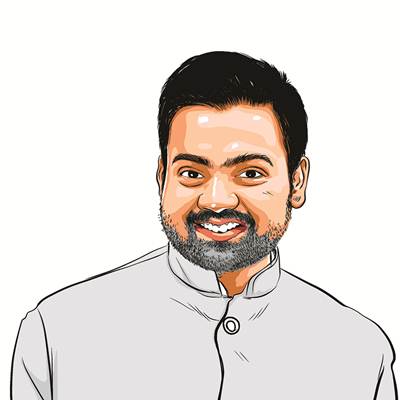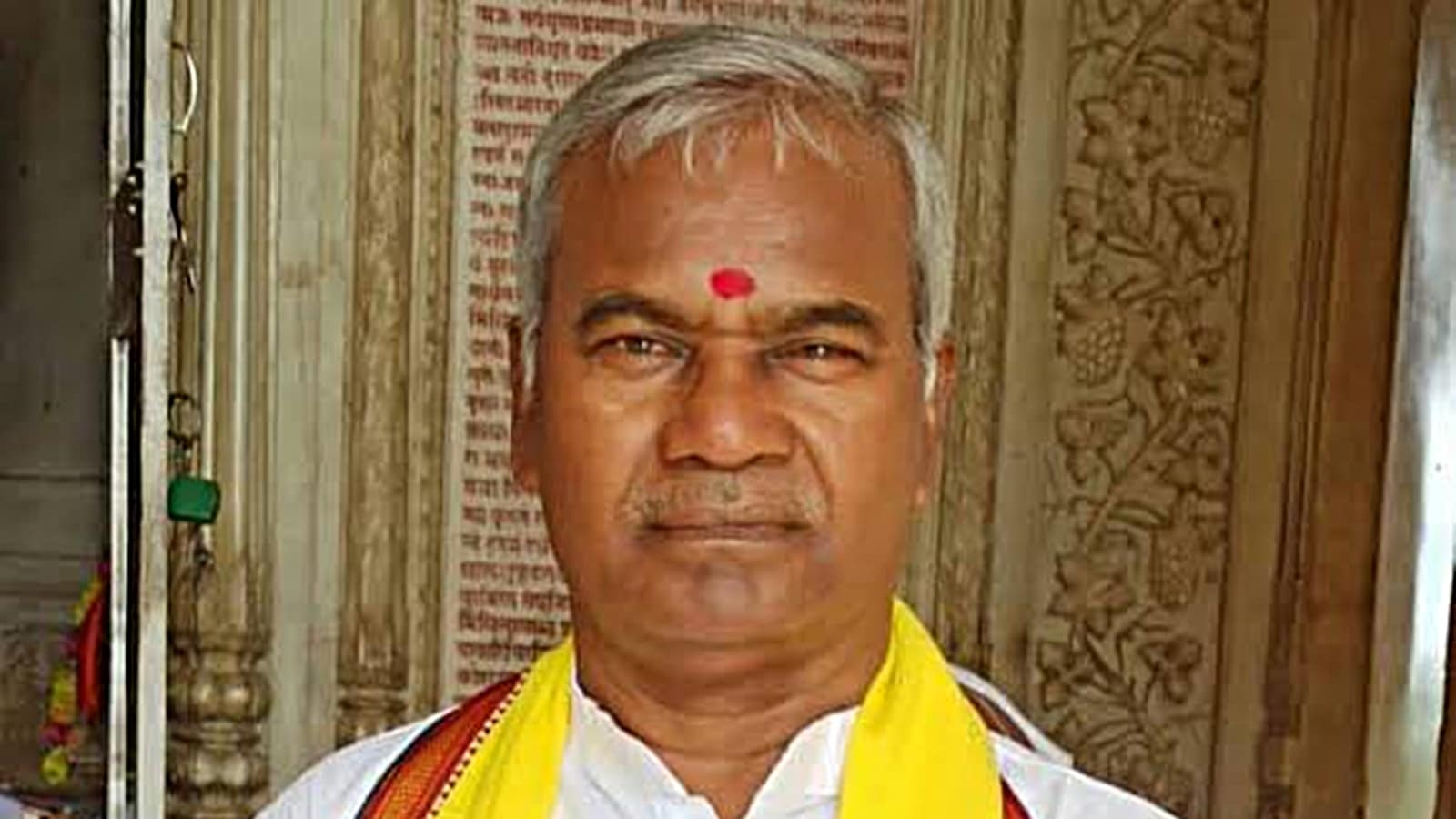

Feb 7, 2025 17:09 IST First published on: Feb 7, 2025 at 17:09 IST
In the world of politics and social activism, there are few figures who embody the ideals of simplicity, devotion, and perseverance as much as Kameshwar Chaupal. In my humble opinion, these are the very words that encapsulate his life and legacy. A true embodiment of the values of “simple living, high thinking”, Chaupal’s contributions were immense, yet his name often remained in the shadows of the much larger narratives of modern Indian history. He was a rare gem — an RSS Swayamsevak, a two-time Member of the Legislative Council (MLC) in Bihar, a member of the Shri Ram Janmabhoomi Kshetra Nyas Trust, and a leading figure in several important organisations like Vishwa Hindu Parishad (VHP), Vanvasi Kalyan Kendra, and ABVP.
For me, personally, meeting and spending time with him remains an unforgettable privilege. The honour of knowing Chaupal is made all the more poignant by his background: He hailed from the Dalit community, and for him to scale the heights that he did, both politically and socially, stands as a remarkable achievement and a beacon of inspiration. His story is one that offers invaluable lessons in resilience and faith.
Story continues below this ad
Born on April 24, 1956, in Supaul district of Bihar, Chaupal dedicated his life to social work and the upliftment of Dalits. He played a pivotal role in shaping the socio-political landscape of Bihar and beyond. In particular, his association with the Ram Mandir movement in Ayodhya remains one of his most defining legacies. He was the kar sevak who laid the first brick of the Ram Mandir in 1989. This simple act, which holds immense symbolic value, showcases not just his devotion to the cause but also the deep connection he felt to Hindu culture. The Ram Mandir today is not merely a monument but a symbol of the resurgence of Hindu pride.
However, it is the quieter, often overlooked contributions of Chaupal that truly make him stand out. His association with the Ram Janmabhoomi Trust, for example, went largely unnoticed in the media and public discourse. Yet, his role was invaluable. In a country where the Dalit community is often seen through a narrow lens, Chaupal’s participation in the Ram temple movement serves as a powerful reminder that Dalits have a long and proud history in Hindu culture. His life is a testament to the deep-rooted connection between the Dalit community and Sanatan Dharma.
Chaupal’s journey was not without its challenges. In an interview from January 2024, he passionately spoke about the significance of the first Shilanyas (groundbreaking ceremony) of the Ram temple. For him, the Ram Mandir was not merely about religious rituals but about the triumph of truth, the assertion of Hindu identity, and the preservation of India’s civilisational heritage. His words resonated deeply, especially when he expressed his belief that the Ram temple was essential not just for Hindus, but for the nation as a whole. It was a clarion call to all Hindus to embrace their culture, their roots, and their faith.
Story continues below this ad
Chaupal’s commitment to Hindu culture was unwavering. He was deeply concerned about the conversion of Dalits to other religions, particularly Islam and Christianity, a concern that was amplified after the Meenakshipuram conversions in Tamil Nadu in the 1980s. These conversions, in Chaupal’s view, were a direct challenge to the preservation of Hinduism and its values. His involvement with the RSS and VHP became more pronounced in the aftermath, as he believed that the cultural and religious identity of Dalits needed to be safeguarded.
What set Chaupal apart from other leaders of his time was his ability to listen to the ground realities and his acute political instincts. He was known to constantly assess the caste equations in Bihar, especially with regard to the BJP’s outreach to various communities. He understood that the political and social dynamics of the region needed to be navigated with care and foresight. A fierce cultural nationalist, Chaupal’s belief in the importance of Hindu identity and culture as the backbone of India was evident in all his actions and thoughts.
One of the most significant aspects of his life was his unwavering belief that Dalits and Hindus were inseparable. Critics of the Hindu nationalist movement often claim that Dalits have no place in the lexicon of Hindu culture. Chaupal’s life and legacy are a direct rebuttal to such claims. He was a living testament to the fact that Dalits have always been an integral part of Hindu society and that their cultural and religious identity cannot be separated from the larger Hindu community. His devotion to Lord Ram, his deep connection to Hindu rituals, and his lifelong advocacy for the preservation of Hindu culture stand as irrefutable evidence of this.
most read
Chaupal’s passing is a moment of profound loss for the nation, particularly for Bihar, where his influence was deeply felt. But his legacy is one that will continue to inspire generations of Dalit youth and cultural nationalists alike. As someone who comes from a similar background, I can personally attest to the profound impact Chaupal’s life has had on me. His dedication to Hindu culture, his pride in his identity, and his commitment to the upliftment of Dalits are qualities that I, too, hope to emulate.
As India’s history is written, the contributions of figures like Kameshwar Chaupal will not go unnoticed. His life provides a model for all of us, regardless of caste or creed, to strive towards a future where Hindu culture is celebrated in all its diversity and richness. His message is clear: The preservation of our culture is essential to the survival of our nation. “If culture is gone, the nation is gone,” he often said, a statement that resonates even more powerfully today than ever before.
Chaupal may have been a quiet soldier in the battle for the preservation of Hindu culture, but his impact will be felt for generations to come. His devotion, his sacrifice, and his tireless work for the upliftment of Dalits and the preservation of Hinduism will continue to inspire millions of Indians, especially the Dalit youth. India will miss him, but his spirit will live on in the hearts of those who believe in the power of faith, culture, and devotion.
The writer is national spokesperson, BJP, and an academic


